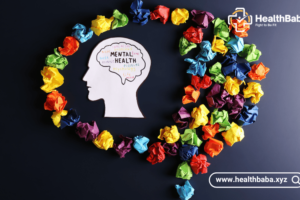Intermittent fasting is an exercise method of dieting in which you alternate eating or non-eating periods of time. If water is fasted, it means drinking water a little longer than necessary. This range ranges from 12 hours to 72 hours depending on your goals and needs. It is used in the modern day in many ways.
How to Do A 3-Day Fast?
Fasting has been practiced by many cultures for centuries with various meanings. The most common being fasting in order to cleanse the body of toxins.
Many people are looking for ways to lose weight, improve their overall appearance, and feel more energized. One way to temporarily achieve these goals is by doing a three-day fast. This process can also be done with any liquids that you wish, including water or tea.
Why did I do a 72-hour water fast?
To begin, the human body is about 60% water. Without getting too scientific, water helps with detoxification and digestion, it transports nutrients and oxygen around your body and prevents dehydration. The average American only drinks about 10 glasses of water per day — less than half what we need — so I wanted to see how my body would react without any liquid for three days.
How can I do a 72 hour fast?
Fasting is a powerful tool for changing your perspective on diet and the way you think about food. A 72-hour fast, or an extended fast of 10 days, is not something that everyone should do, but it can be done with great success by anyone who wants to change their life. This article will tell you how to do a 72-hour fast.
Best way to eat after a 72-hour fast?
The best way to eat after a 72-hour fast is to start off with a light meal consisting of vegetables and broth, then increasing the amount of food as you adjust to being back on solid foods. The goal is not to overwhelm your digestive system, which might make you feel nauseous or bloated.
Few stages of intermittent fasting
The practice of intermittent fasting is not a new trend. With the rise of technology, it has become easier to skip breakfast, lunch, or dinner without the worry of social backlash. Though there are several different ways to fast during various parts of the day, most people rely on fasting for 16 hours each day. This is accomplished by skipping breakfast and eating only dinner after 4pm.
Tips For Surviving A 72-Hour Fast
Eating for 72 hours sounds like a long time, but most people can make it through with some tips. Here are some tips to help you survive:
1) Start by eating a breakfast and lunch that consists mainly of carbs and sugars.
2) Drink 8 glasses of water each day.
3) Avoid eating large meals – instead, eat small snacks throughout the day.
Foods To Avoid After A 72-Hour Fast
A 72-hour fast is an extended period of abstinence from food. It is not recommended to eat certain foods after a 72-hour fast because they will be too difficult for the digestive system to process. These foods include: rich sauces, butter, cream cheese, fried foods, and fatty meats. Foods that are safe to eat after a 72-hour fast include: whole fruit with skin on, plain water, white rice, oatmeal, and low fat dairy products.
Breaking the Fast
Fasting has been a common practice for many cultures and religions to signify an event of great importance. For Muslims, fasting is a way to purify oneself and feel closer to God. It is also a strong public display of faith. Muslims fast from daybreak until sunset, and this observance typically lasts 29-30 days depending on the season. Other forms of fasting include water fasting, juice fasting, Ayurvedic fasting, juice feasting, and restricting calorie intake.
Our history with Fasting
Fasting is a time-honored tradition that has been practiced since humankind first began to question the mystery of life. It was not until the early 20th century, however, that fasting became popularized as an effective method for weight loss and health maintenance.
Fasting has been around for centuries.
It is not until recently that it became popularized as an effective method for weight loss and cleansing of the body.
At 18 Hours – Fat Burning Mode
At 18 hours, your body enters into a state of burning fat for energy rather than carbohydrates. This is because your glucose levels are depleted and the liver kicks in to use fatty acids found in the bloodstream for this energy source. The byproduct of this process is ketones which are converted back into acetyl-CoA to provide energy to the cells.
Cruciferous vegetables
Cruciferous vegetables are among the most nutritious food items in the world. They are low in calories and high in protein, fiber, minerals, and vitamins. Cruciferous vegetables include broccoli, cauliflower, cabbage, kale, Brussels sprouts, bok choy, and other types of green vegetables.
One cup of raw cruciferous vegetables contains 14% of the daily value for protein, which is greater than any other vegetable type.
How to prepare for a 3-day water fast?
Many people believe that fasting is the best diet because it results in weight loss and increases energy. There are many ways to do a water-fast, but here are some tips on how to prepare for 3 days of fasting with ease.
Start by cutting out caffeine, alcohol, sugar, caffeine, gluten, dairy and soy products. This will reduce your cravings and make you feel better during the process.
Non-starchy, non-cruciferous vegetables
Vegetables are typically classified into three main groups: starchy, non-starchy and cruciferous vegetables. This does not include the two other major vegetable groups: legumes and leafy greens.
Non-starchy vegetables are typically higher in vitamins and minerals than starchy vegetables and contain very few carbs.
The definition of fasting?
There are many different definitions for fasting. One definition is not eating or drinking anything except water, and another is abstaining from food and drink to become closer to God. There are also stricter definitions that include abstaining from all pleasures such as sexual intimacy. The Jewish tradition of Yom Kippur is a time of fasting where Jews can’t eat or drink anything between the hours of sundown and sundown the next day.
At 48 Hours – Growth Hormones
Children and adults alike flourish when they are supported with growth hormones. Growth hormone deficiency can lead to problems such as stunted growth, delayed puberty, and weakened muscles. At the age of 48 hours, humans start producing growth hormones. To help maintain health, many people choose to supplement their own production of the hormone by ingesting synthetic growth hormones in small doses.
At 72 Hours – Cell Regeneration
The human body is capable of regenerating cells lost to injury, infection, or other problems. The 72-hour period following serious damage is critical for cell regeneration. During this time, the body’s own natural healing process kicks in and starts repairing the affected area with new cells.
During the 72 hours following a serious injury or illness, it’s crucial that you give your body all the nutrients it needs to repair damaged cells.
Stay Hydrated
Staying hydrated is an easy task, however it can become difficult when you don’t know how much to drink. The key to staying hydrated is knowing your body’s needs and drinking enough water so you do not get dehydrated. There are many ways to stay hydrated. It is important to drink fluids that provide the needed electrolytes and minerals such as Gatorade or Pedialyte and water and eat fruit and vegetables that provides plenty of vitamin C.
What is a 3-day water fast?
A 3-day water fast is an intensive fast that deprives the body of food, but not calories. The body must use the stored glycogen for energy since there are no sources from external food intake. This typically takes between 3 and 7 days, although some people prefer to extend the duration to 10-14 days.
A 3-day water fast is an intensive fast that deprives the body of food, but not calories.
At 12 Hours – Ketosis
Fasting is an ancient practice of reducing or eliminating food for a set period of time. The goal is to cleanse the body of toxins, for mental clarity, and to experience physical cleansing. Fasting also causes ketosis which can result in weight loss, improved heart health, increased brain function, better sleep quality, and higher energy levels.
Bone Broth
Bone broth is a liquid that has been made by simmering or boiling animal bones with water for an extended period of time. It is believed to have originated in ancient times when people found that bones contain many nutrients and minerals, including calcium, phosphorus, magnesium, silicon, sulphur, and collagen. It is an even more nutrient-rich liquid than chicken soup.
Ease Hunger Pangs With Black Coffee
Carbohydrates are a staple in American diets and provide the body with a source of energy to fuel our daily tasks. Contrary to popular belief, these carbohydrates can come from a variety of sources, whether it be fruits, vegetables, grains, or dairy products. If you find yourself experiencing hunger pangs in between meals, do not fret. Black coffee is a simple solution to satisfy hunger for those who do not want to eat traditional food or take supplements.
Lactose
Lactose is the predominant sugar in milk. It is composed of two simple sugars, glucose and galactose. The enzyme lactase breaks down lactose into its constituent sugars, which are then absorbed by the small intestine. Lactose intolerance occurs when people do not produce enough of the enzyme lactase to digest their body’s natural source of dairy.
Proteins
Proteins are an important structural component of our bodies, but there are many other functions proteins perform. Proteins are also needed for the production of hormones, enzymes, and antibodies.
Certain amino acids can be eliminated from protein structures to create more specific functions. For example, if a protein contains too much leucine, it will cause the protein to be destroyed by proteases in the body. This is why proteins contain different ratios of amino acids.
Processed high-glycemic carbs
Processed high-glycemic carbs are unhealthy for two reasons. First, they cause a rapid rise in blood sugar, which leads to a “sugar rush” followed by a slump of low energy and a craving for more carbs. Second, they break down quickly into simple sugars and trigger the body’s fat-producing hormones called insulin which can lead to obesity.
Processed high-glycemic carbs are unhealthy because of the short term consequences that occur from eating them.
In conclusion, the benefits of a long water fast are numerous. It is not as dangerous as you might think. However, if you suffer from any health issues, it would be best to consult with your doctor first before attempting this type of fast.
















Add Comment